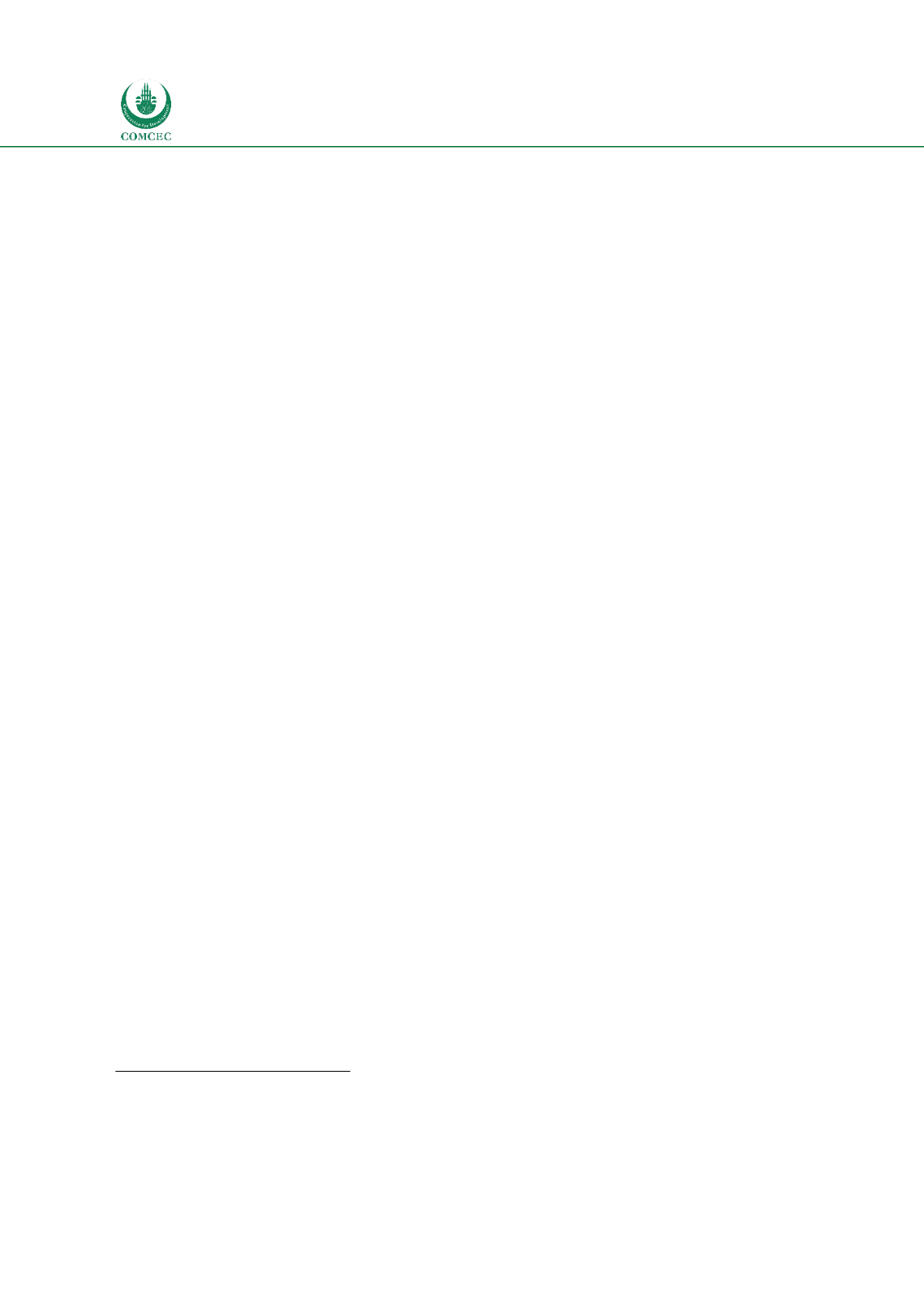

National and Global Islamic Financial Architecture:
Problems and Possible Solutions for the OIC Member Countries
128
4.9. Senegal
Senegal, a nation on the northern fringes of the Sahel has a population of 13.97 million in 2015
with 95% of them being Muslims (CIA 2016). While West African countries are part of the
Economic Community of West African States (ECOWAS). The region is also grouped into two
consortiums along linguistic lines. Senegal is a member of eight West African French speaking
countries forming West African Economic and Monetary Union (WAEMU).
31
The member
states of WEAMU share the same currency, CFA Franc, that is issued by Central Bank of West
African States (BCEAO) and pegged to the Euro (Allen et. al . 2011). The Banking Commission
under the BCEAO oversees and supervises banks and financial institutions in member
countries.
There are 26 financial institutions in the country (23 banks and 3 credit institutions) of which
the Islamic Bank of Senegal (BIS) was established in 1982 by the group Dar-al-mal al Islami.
Later, the government of Senegal took the majority shares of the bank and turned it into a
conventional bank. Later in 2010, with the Islamic Finance Forum and the new trend of Islamic
Finance, ICD (the private arm of the Islamic Development Bank) and Bank Asya took a 70%
stake of BIS’s shares with the intention of turning it into a fully fledged Islamic Bank.
32
BIS is
expected to command 10% of the market share by 2016 (IFN 2016). Other Islamic financial
institutions in the country include Islamic Investment Company of Senegal and Salama
Assurance Sengal (formerly SOSAR), a subsidiary of Dubai based Islamic Arab Insurance
Company (IFN 2016; Abdullahi 2013).
The regional stock exchange for WAEMU
Bourse Regionale des Valeurs Mobileres
(BRVM)
started in 1998 (Allen 2011: 96). Located in Abidjan, it has branches in capital cities of all
member countries. Senegal was the first West African state to issue a four year ijarah sukuk in
2014 that raised XOF 100 billion (USD 163.13 million) (IFN 2016). Being the first Islamic
security of its kind in the region, Senegal has successfully entered the race of being the West
African hub for Islamic finance and has set the tone for other countries like South Africa and
Ivory Coast.
4.9.1. Legal infrastructure
Supporting Islamic Finance laws
The banking sector in Senegal is governed by the common WAEMU Banking Law which allows
Shariah compliant banking activities and further clarifications to the law are being made for
Islamic banking (Gelbard et. al. 2014: 10). The Central Bank of West African States allowed
Islamic banking in its conventional legal and regulatory framework allowing Islamic banks to
operate under the label “financial institutions not using interest rates”. In July 2008, the former
President Abdoulaye Wade promulgated the law that regulates the banking system. The set of
laws do not include any references to Islamic finance. There are no specific Islamic capital
market laws. Senegal issued its sukuk under existing financial laws (EIU 2015: 17). Similarly,
there are no specific laws covering the takaful.
31
Other members of WAEMU are Benin, Burkina, Ivory Coast, Guinea Bissau, Mali, Niger and Togo
32
Note that operations of Turkey’s Bank Asya were suspendend on 23 July 2016 and the impact of
this on the status of its ownership in BIS is not clear.
















